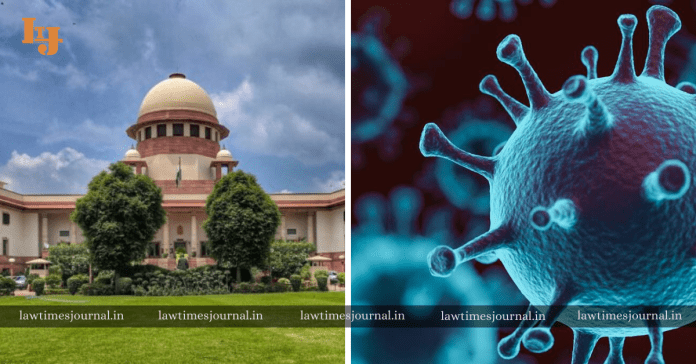A petition was filed in the Supreme Court on Saturday seeking direction on setting aside the RBI’s March 27 circular on a three-month moratorium on loan repayment between March 1 and May 31 amid coronavirus pandemic.
Prior Facts:
The Reserve Bank of India (RBI) had issued the circular giving liberty to all banks and financial institutions to allow a moratorium of three months on payment of instalments in respect of all term loans outstanding as on March 1, subject to the borrower making such a request.
It had said that the repayment schedule for such loans as also the residual tenor would be shifted across the board by three months after the moratorium period. Interest shall continue to accrue on the outstanding portion of the term loans during the moratorium period.
The RBI in a circular issued later clarified the following: Interest shall continue to accrue on the outstanding portion of the term loans during the moratorium period. Deferred instalments under the moratorium will include the following payments falling due from March 1, 2020, to May 31, 2020:
- principal and/or interest components;
- bullet repayments;
- Equated Monthly instalments;
- Credit card dues.
Key Features:
The petitioner advocate Amit Sahni has alleged that the RBI circular is an “eyewash as it provides that the interest shall be chargeable during the moratorium period and it makes no sense in paying additional interest along with the regular EMIs“.
It sought a direction to the Centre and the RBI to clarify that any interest and accumulated interest on outstanding amount shall not be charged from the borrower for the moratorium period by any bank and financial institution.
It also sought directions to the government and the RBI to “appropriately consider extending the moratorium period for a certain period to enable millions of persons, who may get unemployed due to COVID-19 health emergency for some time even after lockdown“.
The plea said that “The purported relief proclaimed to have been given by the respondents (Centre and RBI) vide circular dated March 27, 2020, is incomplete as the same does not provide interest relaxation to citizens and those who avail moratorium of three months shall have to pay interest on the same subsequently”.
It said that COVID-19 has impacted every segment of society and its consequences would be far more serious even after lifting the ongoing lockdown and in such a situation, the government and the RBI are “duty-bound to support its citizen“.
Edited by J. Madonna Jephi
Approved & Published – Sakshi Raje







